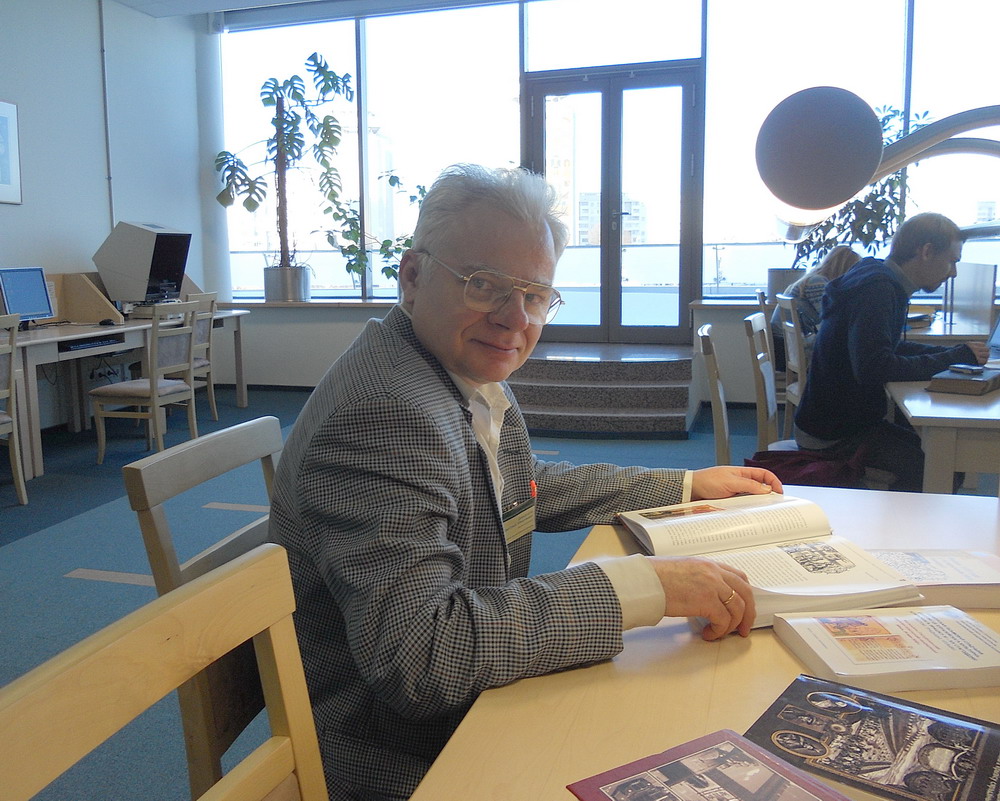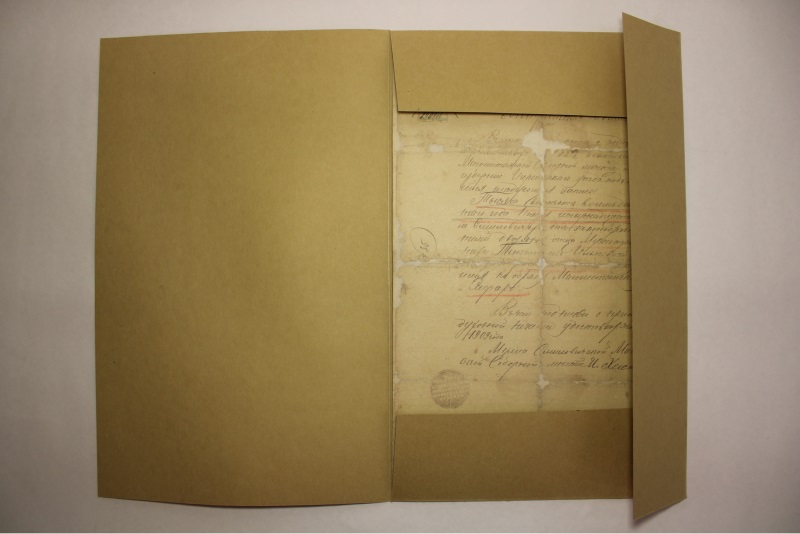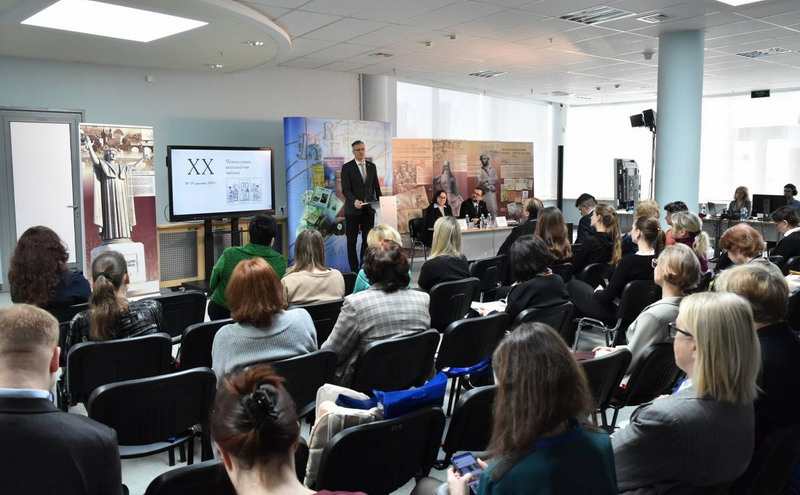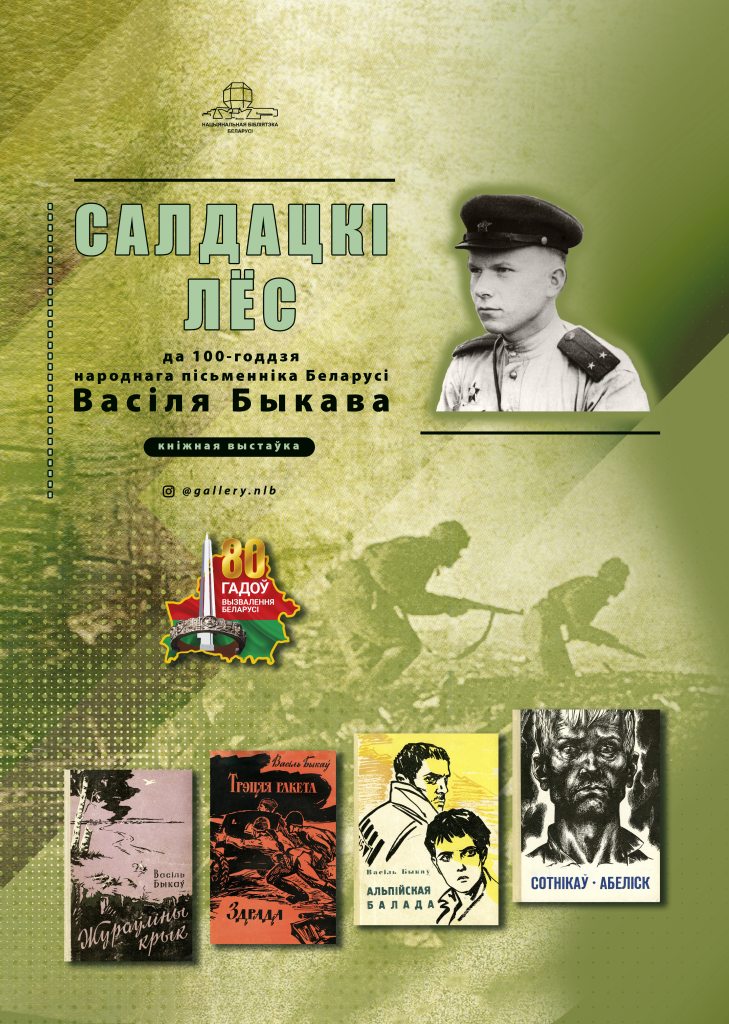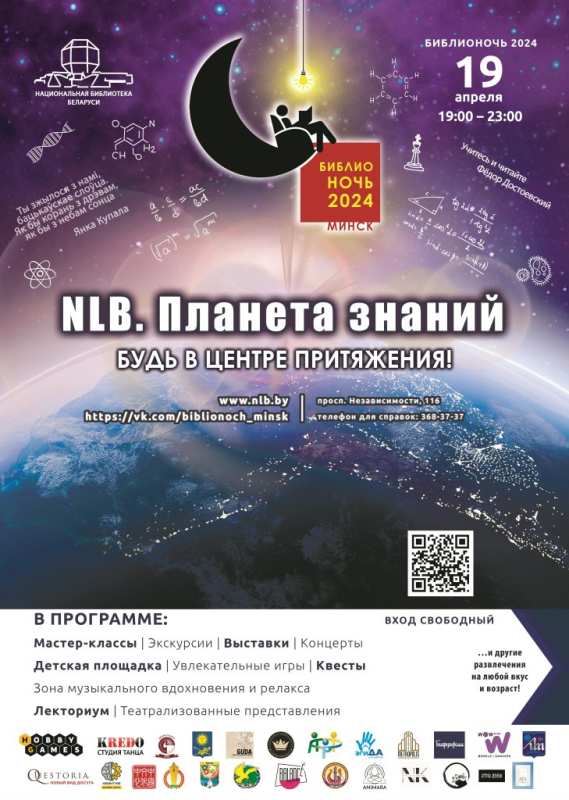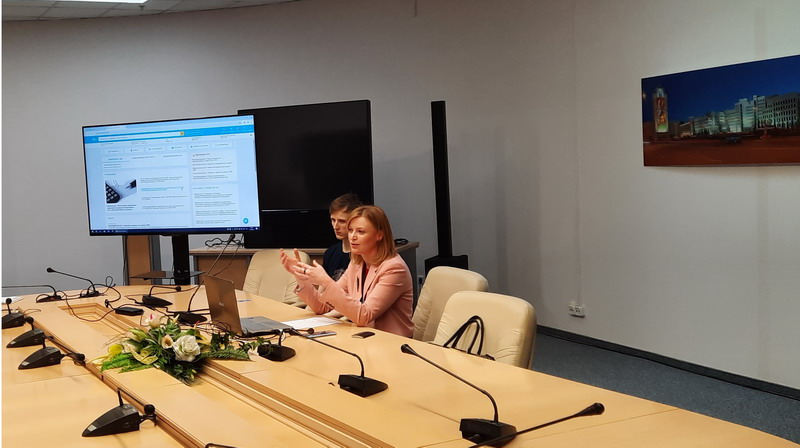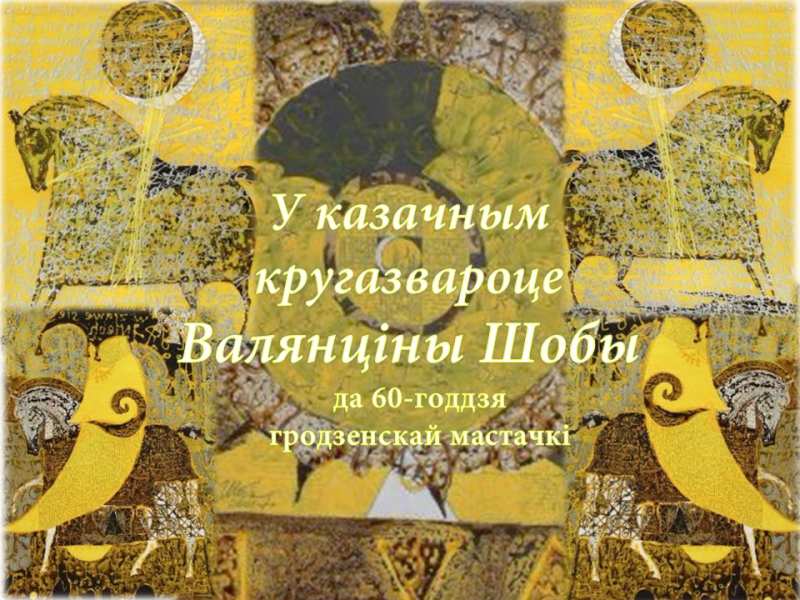In the National Library there are not only magazines and newspapers, books and prints, vinyl records and video / audio discs, exhibitions, tours, book presentations and other events, but also the unique employees.
For almost 40 years Dmitry Davidovsky has been welcoming visitors in the Belarusian Literature reading room. In addition to library work, he is engaged in the study of Belarusian literature and culture. He has not only literary publications, but also the common publication with Rygor Borodulin of a collection of works by Vladimir Dubovka.
Library then and now
I came to work in the Belarusian department of the National Library (then "Leninka") in 1980 after the studies at university. In comparison with the new building, the conditions in the previous building on Krasnoarmeyskaya Street were not so comfortable. We had a fund of two million units: magazines, newspapers, books from pre-revolutionary times to the present.
Since then, of course, a lot of things have changed. There was not good lighting in the storage. Nevertheless, there were always many readers. Now there are no problems with lighting even in the storage. Readers have access to any database; they can read dissertations from around the world. In the reference department, before there was only a Russian base. And today everyone can open Cambridge, Oxford databases. Now there are a lot of opportunities for researchers.
Such masters come to us!
In our reading room there were always a lot of writers − Rygor Borodulin, Nil Gilevich, Ivan Naumenko, Arseniy Lis, Mikhas Mushinsky. It was very interesting to work. Historians Vitaliy Skalaban and Vladimir Mikhnyuk, literary critic Pyotr Vasyuchenko and many other researchers were also our readers. And now most of the employees of the National Archives are also our clients.
The writers Vladimir Lipsky, Kastus Tsvirka, historians Vladimir Orlov, Gennady Saganovich and others still come here. They remained faithful to our reading room. Some of them were assigned to the scientific reading room, but they still work in ours.
About Borodulin and young writers
In 1994, I accidentally met Rygor Borodulin when I came to the birthday of a friend of our family. After our first meeting, Rygor entrusted me with work on the compilation of the collected works of Vladimir Dubovka in four volumes. The publication never came out, and he reproached himself for it, although it was not his fault.
Borodulin for me is the godfather in literary criticism. Rygor was a real intellectual. The poet spoke to me as if it belonged to me all his titles and awards. The poet spoke to me as if all the titles and awards belonged to me, not him. He even made remarks very delicately, gently, so as not to offend. That was his style of communication.
Thanks to him many people entered the literature or remained in it, leaving a mark on history. Rygor became the godfather not only for me, but for a lot of people. I am very grateful to him for this, because there are very few people like him. After his departure from the publishing house "Mastatskaya Literatura", that team has almost broken up.
If they asked me if we now have authors and literary critics of such a level, a couple of years ago I would say no. But today, young talented poets(?) and prose writers began to appear. They are popularized by the "Maladosts" magazine. Competitions are held there, as in Belarus in the 1920s. Thus, people are revealed as creative individuals, even if they receive only a magazine subscription as a bonus. And today, "Maladosts" demonstrates talented young translators, poets, writers. They will replace Bykov or Borodulin, time will show. Time will tell whether they will be able to replace Bykov or Borodulin. But they are certainly talented.
Librarians must find information even in a source in there is nothing
Young people are now returning to the libraries and to the book, the number of visitors is slowly increasing. Young people pay more attention to the Internet, social networks, but they also begin to understand that you won’t find everything on the Internet. This Internet boom is slowly moving away. To find a digitized pre-revolutionary book, you need to lose a lot of time. And you come here, wait about twenty minutes and you got it.
If I am allowed to go to the storage, I will find something interesting that I haven’t been looking for, because it’s a habit to be interested, to stick my nose everywhere. I worked in the warehouse for twenty-six years, and I still remember the whole fund well.
For me, work in the library and scientific activity are much interconnected. When I came to the book depository for the first time, I saw magazines "Maladnyak" and "Uzvyshsha". There is a complete collection in the fund. The fund of our Belarusian reading room was very rich, which encouraged research and creativity. And now it’s very good: you come to the library; the next door is the National Archive. Everything is in one place.
Research interests help in the profession. Without an in-depth approach, we can’t work well with the reader. If we talk about our scientific interests, some things are often found accidentally during the library work.
Exploring the creative fate of our famous artist Yehuda Pen
My mother studied in the same class as the grand-niece of Yudel Pen, Anna Gershtein. One day she called us and said about a documentary about Pen. The film raised more questions than answers. I wanted to explore all this. I found documents in the national archive that no one picked them up before me.
Thanks to research, now I have about three hundred pages about Pen. A book is being prepared. Less than half are documents from the National Archive. At the beginning of my research I thought that there was nothing about him... Sometimes you return to the documents that you’ve already examined for three times, and you see that you missed some details. When information is gathered, you work in a completely different way.
I have many plans. Now I am participating in a project dedicated to the 100th anniversary of "Maladnyak". It is necessary to continue research, cause repeating some already written information is not conscientious.

Grandfather also worked as librarian, collected a large collection of books, saved people and had gifted hands
My parents were not humanitarians. My mother, Irina Golubovich, devoted herself to medicine, went through the war and met Victory as a senior operating nurse. In peacetime, she became an oncologist surgeon. My father, Nikolai Davidovsky, taught higher mathematics at the Institute of Agricultural Mechanization (now - BSATU). My grandfather, Anton Golubovich, became a librarian in the difficult post-war period. I found out this, when I came to work in the library. I wanted to work with a book, learn new things. Where is it easier to do that? Here in the library.
The library collection that my grandfather was gathering was lost. I learned about it from my mother. It was a collection comprised about five hundred editions: famous Brockhaus and Efron Encyclopedic Dictionary, complete works of Pushkin, Turgenev. In addition to Russian-language books, there were Polish-language ones. My mother spoke Polish at home in childhood and Belarusian with her friends.
My grandfather worked as the chief engineer of the distillery in Minsk, the war began when he was in Bialystok on a business trip. During the war, he helped with weapons to partisans and underground workers, as well as medicines, bandages. He saved people from raids both in alcohol tanks and in the potato storage.
Even to this day, the furniture made by my grandfather is kept in the Yakub Kolas Museum. Indeed, in difficult times he worked for temporary earnings. His hands were gifted, he could do everything.
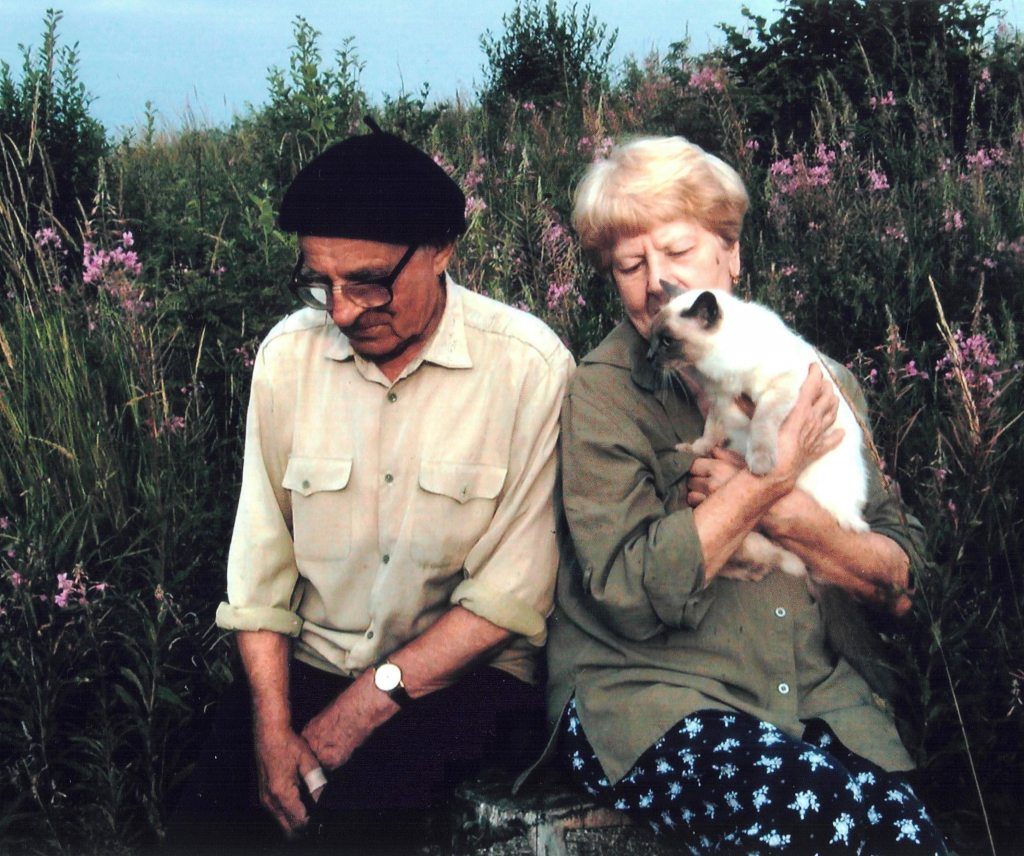
Dmitry Davidovsky’s parents
I had a very good teacher
My teacher of the Belarusian language and literature Sofia Vasilevskaya advised us to read the works by Vladimir Dubovka, Todor Klyashtorny, all of our talented young writers. In the 1970s we knew about the literary process of the interwar period. We listened to the teacher so attentively that it could be heard a mosquito flying.
What else struck me: at the graduation party in 1976, she went up to my mother and said: “Mark my words: he will write”. It came true.
Interviewed by Yana Poleshchuk.
Dmitry Davidovsky was born on February 2, 1958 in Minsk. In 1980, he graduated the Minsk Institute of Culture (now the Belarusian State University of Culture and Art) and began working in the department of Belarusian literature and bibliography of the Library named after V.I. Lenin. Today he works as a leading librarian of the Specialized Documents Department of the National Library of Belarus. The author of numerous articles on literary themes and of a brief biography of Vladimir Dubovka and comments on his collected works in 2 volumes (Minsk: Limarius, 2017). He is married, has a daughter and a son.
Internet Portal Maintenance Department

